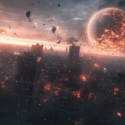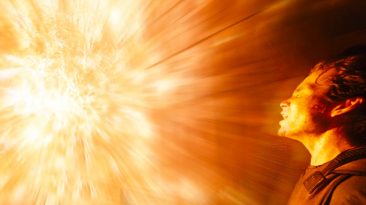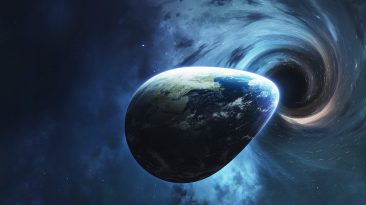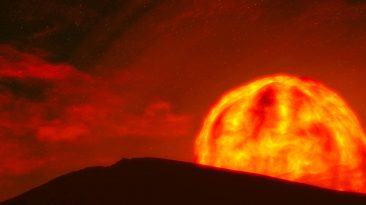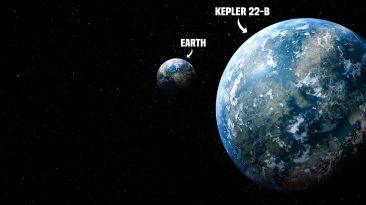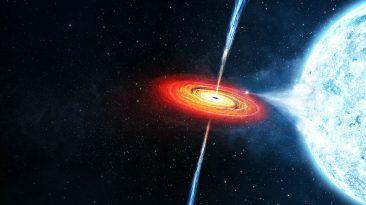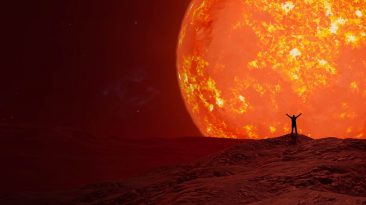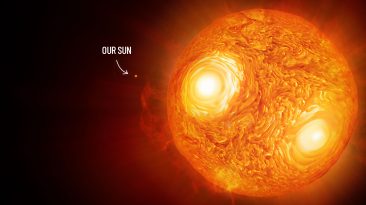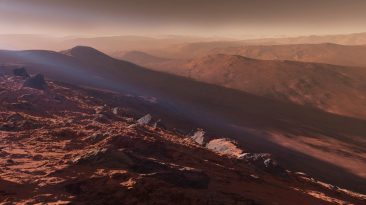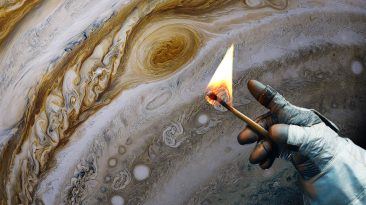In the beginning, there was nothing. Then bang. Our Universe emerged in an explosion of light and energy. Or did it? Let’s shed some light on this.
So, how fast is the Universe expanding? Will the Universe and everything in it ever die? And why could our Universe have existed before the Big Bang?
The Universe is big. Like, astronomically big. Current theories say that it all began 13.7 billion years ago.
And everything we see came from an infinitely dense point called a singularity. But where did that singularity come from? There might be more to it than you think. And maybe the Universe never really had a beginning.
The Big Bang theory tells us that after the Universe emerged from a singularity, it started expanding and fast. This is known as the cosmic inflation phase. And when I say fast. I mean fast.
One moment, there was a single point half the size of a DNA molecule. A fraction of a second later, it expanded to 10.6 light-years across. This is how the Universe we know and love today ended up being relatively stable with hardly any density fluctuations.
But these small density fluctuations are the reasons why we have galaxies and stars. When we start talking about distances this big, we can use the term ‘parsec’, which is a distance of 3.26 light-years. A megaparsec is a million times bigger.
Currently, the Universe is still expanding. It’s expanding at a rate of 73.5 km/s (45.6 mi/s) per megaparsec. That means that for every 3.26 million light-years an object was away from us, it is moving 73.5 km/s (45.6 mi/s) faster.
But there’s a problem. If the Universe keeps expanding for billions and billions of years, at some point, it could enlarge too much. All the energy in it would dissipate. And then our Universe wouldn’t exist anymore.
But what if I told you there is a new theory in town? Scientists are calling it the Big Bounce. It’s a combination of the Big Bang and the Big Crunch. The Big Crunch is when the expansion of the Universe goes in reverse, and the Universe collapses. You can say it’s the exact opposite of the Big Bang.
The Big Bounce theory says that the Universe will eventually start to contract. And when it does, instead of reaching a singularity, it tunnels into another expanding universe.
Just imagine a balloon expanding and contracting, and each cycle would be our Universe starting over again. So you may be asking, how is this different from the Big Bang? Well, this theory is different because of what scientists call the scalar field.
The scalar field would make the gravitational field exert negative pressure, stopping our Universe’s contraction. Then, the expansion would begin all over again. If this theory is right, it could have serious consequences for our Universe.
First off, it could mean that our Universe would have no beginning and no end. It would be reborn every time it collapsed. And if you think about it, that would make our Universe infinite. Maybe not in size, but in time.
But if you think you could stick around to see it, that’s probably not going to happen. That’s because once the Universe contracts, it wouldn’t be the same. For instance, matter would be distributed differently. So most likely, the new version of the Universe would not be like ours.
And it could be so different that the laws of physics would not be like the laws we know. The Universe could emerge in such a way that no stars or planets would form. Or maybe the Universe would form so that complex life-forms could flourish. Would that be amazing, or what?
So, if we take a look at the big picture, what does all this mean for us? Well, not much would change in our everyday lives. All the changes would be so far in the future that they won’t affect us, whatever they are. When it comes to the future of the Universe, we know so little that anything could happen.
So we’ll need to keep looking at the stars, as the answers are out there. Somewhere. And you know what else is out there? Black holes. What would happen if you fell into one of them?
Sources
- “Dark Energy”. 2021. hyperphysics.phy-astr.gsu.edu.
- “Solved: The mystery of the expansion of the universe”. 2021. phys.org.
- “Hubble Law And The Expanding Universe”. 2021. hyperphysics.phy-astr.gsu.edu.
- “Did The Universe Boot Up With A Big Bounce?” Moskowitz, Clara. 2016. Scientific American.
- “Ask Ethan: Could The Universe Have Begun From A Big Bounce?”. Siegel, Ethan. 2021. Forbes.
- “How The Universe Got Its Bounce Back | Quanta Magazine”. 2018. Quanta Magazine.





